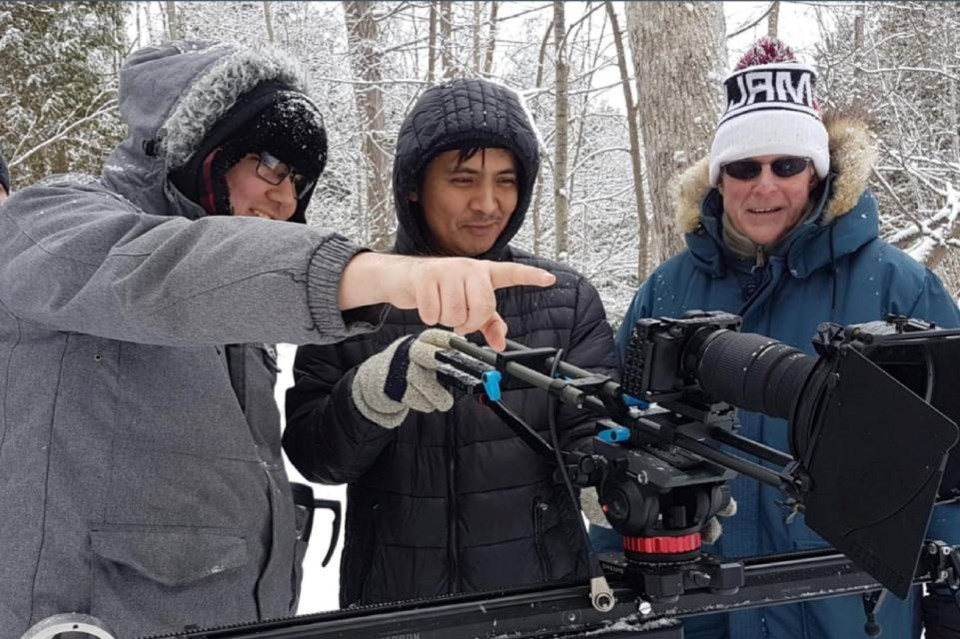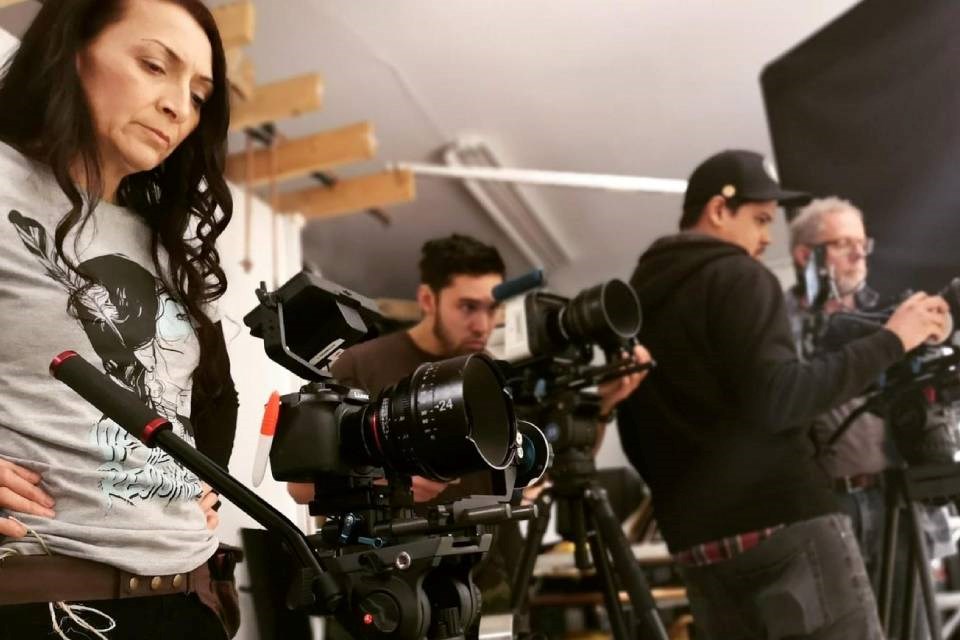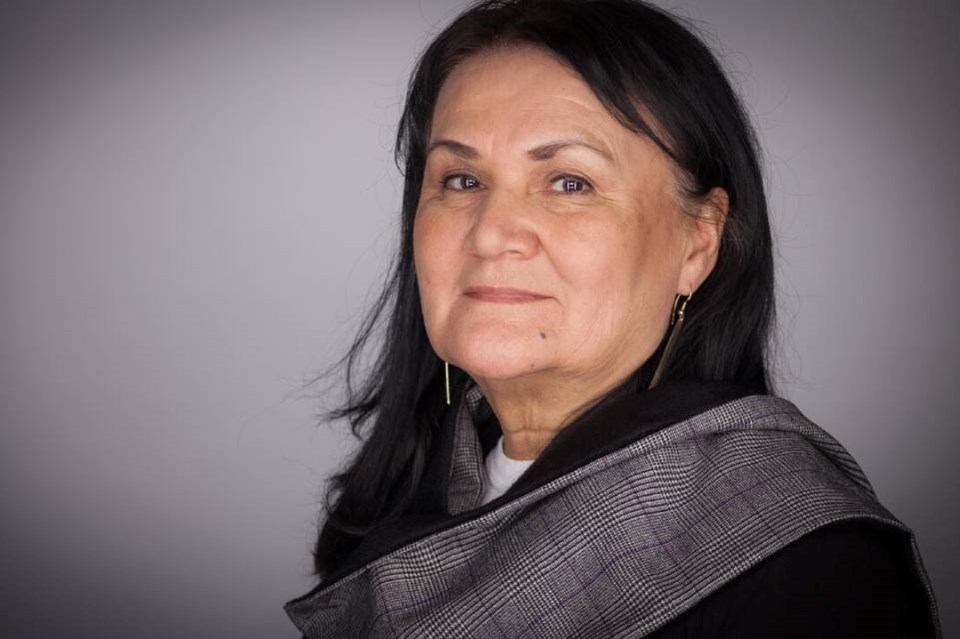Dr. Shirley Cheechoo, one of Canada’s most prolific multi-genre artists, has been recognized with a prestigious accolade from the Canada Council of the Arts.
In May, Cheechoo was announced as one of two recipients of the Molson Prize, which is awarded annually to distinguished Canadian artists who contribute to cultural and intellectual life, and comes with a $50,000 award.
Cheechoo was chosen for her “outstanding contributions to the arts and education sectors.”
“Taking risks has allowed me to share my voice and heritage and affirmed the importance of art in bridging cultures and healing communities,” Cheechoo said in a Council statement upon receiving the honour.
“It's a testament to the idea that the world eventually takes notice when you commit to your true path.”
This is just the latest in a long list of accolades the artist has earned for her work, including a Lifetime Achievement Award from the National Aboriginal Achievement Foundation (2008), the Queen's Diamond Jubilee Award (2013), and an investment into the Order of Canada (2019).
Cheechoo was born in Eastmain, Que., a small Cree village on the east shore of James Bay, and later lived in Moose Factory.
As a very young child, she was taken away to attend Shingwauk Residential School in Sault Ste. Marie. She said she has overcome many barriers, from limited resources to systemic racism. Today she describes herself as a warrior rather than a survivor.
“My journey into filmmaking began with a deep passion for storytelling and a desire to share Indigenous narratives,” shared Cheechoo in an email conversation with Northern Ontario Business.
There are critical influences that have directed her life’s work, the first being when she met Thomas Peltier from Wiikwemkoong as a teen. He introduced her to the Manitou Arts Foundation, which ran a summer art camp for Indigenous youth on Manitoulin Island.
The second influence was attending film centres that built Cheechoo’s skills as a filmmaker. The writer/director program at the Sundance Institute and the Norman Jewison Program at the Canadian Film Centre played significant roles in her development.
In 1984, Cheechoo and her husband, the late Blake Debassige, formed the Debajehmujig Theatre Group, a multi-disciplinary arts organization dedicated to the revitalization of Anishinaabek culture.
She started to win awards, including at the Reel World Film Festival, which elevated her profile and validated her work within the industry.
Cheechoo’s seminal work, “Backwoods” (also known as “Bearwalker”), takes viewers through a day in the life of an Indigenous woman living on a remote Canadian reserve, who is brutalized by the men in her life.
The film marked the first time an Indigenous woman had written, produced and directed a dramatic feature film, earning the filmmaker Reel World’s Best Director Award in 2000. It later went on to screen at the Cannes Film Festival in France.

Knowing first-hand the value of giving back to the next generation, Cheechoo founded the Weengushk Film Institute in 2002.
Located in Cheechoo’s adopted community of M’Chigeeng First Nation on Manitoulin Island, the non-profit training centre educates young Indigenous artists in the film and television arts.
Launching the training centre was a “pivotal step,” Cheechoo said, “as it allowed me to create opportunities for other Indigenous filmmakers and foster a community of creative talent.”
In 2018, she went on to found the Weengushk International Film Festival, an annual screening of Indigenous films designed to shed light on the legacy of Canada’s residential school system.
Cheechoo shared how challenges are a constant in life, especially coming from the residential school experience.
“You have to live a life from day to day, and learn to forgive yourself and try not to carry that burden to your family and your loved ones,” she said.
“My goal has always been to empower young people, especially Indigenous women, through the Weengushk Film Institute. By providing education, resources, and mentorship, I hope to help pave the way for the next generation of storytellers.”
She has always held the belief that Indigenous voices need to be heard, not only in Canada but around the world.
“I have always used the quote from Black Elk,” said Cheechoo of the late Lakota medicine man. “‘A man who has a vision is not able to use the power of it until after he has performed the vision on earth for the people to see’ — and I try to live by it.”
More recently, Cheechoo has been inspired by the Canadian change-maker Phyllis Ellis, the filmmaker behind the impactful documentaries “Toxic Beauty” and “Category Women”. Ellis’ work exemplifies the kind of transformative storytelling Cheechoo said she aims to foster in future filmmakers.

Cheechoo’s commitment to ensuring young Indigenous filmmakers find their place is what fuelled the opening of the Weengushk Film Institute.
The institute runs a comprehensive program every year from September to June. Young people work on their films, develop their technical filmmaking skills, and come away with a calling card film. Cheechoo further explained that the calling card film is a crucial step in establishing their careers.
Weengushk not only provides technical training but also emphasizes cultural education, ensuring that students’ voices are authentically represented.
Cheechoo said that Indigenous filmmakers face unique challenges, including underrepresentation and a lack of access to funding and resources.
“There is also the ongoing issue of cultural appropriation and the need for authentic representation,” she said.
“Generally, the film industry is grappling with issues of diversity and inclusion, ensuring that a wider range of voices and perspectives are heard and valued.”
But Cheechoo is optimistic about the future of filmmaking and the inclusion of more voices.
A recent partnership between Laurentian University and the Weengushk Film Institute is providing students with the opportunity to earn full credits that can be transferred to any university.
Completing two years at Weengushk Film Institute gives students 60 credits toward their bachelor of arts degree, making higher education more accessible and achievable for those who might not have had the opportunity otherwise.
“It’s a vital initiative that not only nurtures artistic talent but also empowers a new generation of Indigenous storytellers to share their unique perspectives and experiences with the world,” said Cheechoo.
